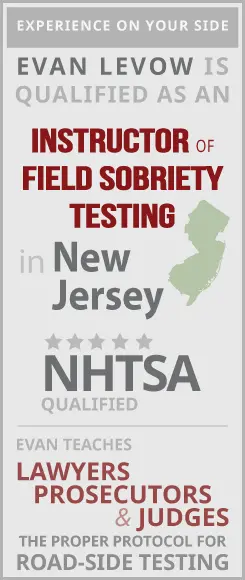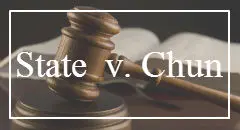You were stopped, tested and arrested.
But your legal journey is just beginning. While New Jersey can be tough on drivers, conviction is anything but assured at this point. With an experienced DWI attorney, you’ll have a better chance of fighting the charges, dismissing evidence, and avoiding many penalties.
Here’s a look at what comes next:
1. Arraignment
Arraignment is a formal hearing that usually occurs within a few days of your arrest. The court will officially charge you with a crime, and you will announce whether or not you are pleading guilty.
If you’ve already hired an attorney, they’ll often be able to “waive” your presence at the arraignment. Some judges, though, require your presence, whether or not you already have a lawyer.
2. Pre – Trial Conference
After the arraignment, you’ll be assigned a court date, which usually comes within 3-4 weeks after your arrest. If the police reports have been made available to your attorney by that time, and all of the defenses to the charges have been determined, the case can be resolved immediately, either through trial or plea.
However, most of the time, a postponement is required to obtain full “discovery”, determine your best defenses, and consult with potential experts. The latest possible postponement will probably be within 7 weeks of your arrest.
Often, you will have only one court date after arraignment, where you will either go to trial or resolve your case by entry of a plea.
3. Suppression Hearing
The Court may suppress some or all of the evidence against you if your constitutional rights have been violated. Your lawyer will file motions to suppress at the time of trial, after receiving the “discovery” or police reports regarding your arrest.
You can find a description of the “discovery” process here.
4. No Plea Bargaining
Plea bargaining is an arrangement made between a defendant and the State’s prosecuting attorney. The defendant agrees to plead guilty to a lesser charge, in exchange for a more lenient sentence.
The Supreme Court has precluded any plea bargaining regarding DWI charges. The State must be able to prove its case against you beyond a reasonable doubt, or it can choose to dismiss or downgrade to a lesser charge that is more appropriate to the offense.
5. Judge Trial
New Jersey does not allow jury trials in DWI matters. Your case will be heard before a Municipal Court judge. Resolution of your case, whether by trial or plea, must be within sixty days after your arrest. There are some variations to this but the courts attempt to follow this rule strictly.
6. Sentencing
The Court imposes a sentence after a conviction at trial. Sentences may include jail time, community service, alcohol classes and fines.
You can learn learn more about the penalties associated with a DWI conviction here.
7. Appeal
Cases that are not won in the Municipal Court may be successful on appeal.
8. Post Conviction Relief
The penalties for a second or third DWI are more severe than those for a first offense. But you may be able to challenge an old conviction. If you were not properly represented in your prior case, you can bring a challenge to the original court and have that conviction overturned.


